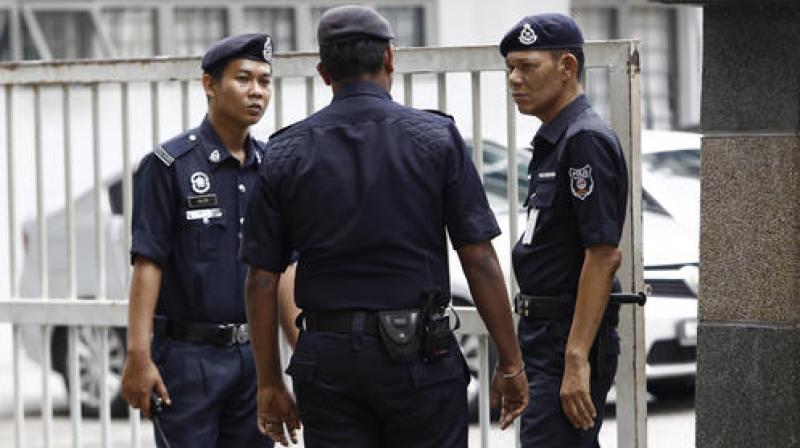North Korea more isolated than ever after Malaysia killing

Kuala Lumpur: North Korea had few friends even before the assassination of the leader's half-brother at a Kuala Lumpur airport last week, but the fallout from the killing looks set to further isolate the nuclear-armed state.
Pyongyang and Kuala Lumpur have enjoyed relatively warm economic ties, with some bilateral trade and citizens from both countries entitled to travel to the other under a unique reciprocal visa-free deal.
Malaysia has also provided a channel between Pyongyang officials and the wider world, with Kuala Lumpur in recent years serving as a discreet meeting place for talks between the regime and the United States.
But all that could come to an end following a war of words over Malaysia's probe into the assassination of Kim Jong-Nam, which has seen Pyongyang's envoy to Kuala Lumpur savage local police, and Malaysia recall its ambassador to the North.
Singapore cancelled its visa-free arrangement with Pyongyang last year in protest over the regime's fourth nuclear test. Andray Abrahamian of Choson Exchange, a non-profit that provides economic policy training to North Koreans, believes Malaysia could now make a similar move.
"It wouldn't surprise me. The arrangement is already absolutely unique. North Koreans don't need a visa to work in Mongolia, China, Vietnam, Cambodia, Laos. But the Malaysian side is the unusual thing," he told AFP.
Malaysia and North Korea are both non-aligned nations and the one-off visa deal was likely hashed out as they sought to develop business ties, he said.
Muhammad Fuad Othman, a lecturer in international politics at Universiti Utara Malaysia, said diplomats would need to be seen to respond to the killing which Seoul has said was orchestrated by Pyongyang.
"In order to pacify the West maybe there is a need to re-evaluate the free visa policy that we accord to North Koreans," he said.
Up to 1,000 North Koreans currently work in Malaysia and, like expats from the Stalinist state worldwide, their remittances are a valuable source of foreign currency for the isolated regime.
North Korea imports refined oil, natural rubber and palm oil from Malaysia, which buys electrical and electronic items, chemicals as well as iron and steel products from North Korea.
On the Malaysian side bilateral trade is negligible, amounting to just 23 million ringgit ($5.2 million) out of the country's total external trade of 1.5 trillion ringgit, according to figures cited in the Malaysian press.
The pinch of any tail-off in trade would be felt more keenly in North Korea, especially when combined with the much harder blow of China's snap decision to halt coal imports from the country last week.
With friends like these
In other areas the strain is already beginning to show, with Malaysia's sports minister asking the Asian Football Confederation (AFC) to consider safety concerns ahead of the national team's planned match against North Korea in Pyongyang next month.
"I will ask the AFC to monitor the situation in Pyongyang because security is our priority. It is a difficult situation now because the diplomatic relationship between North Korea and Malaysia is strained," Khairy Jamaluddin said Tuesday.
But officials in the North are unlikely to be losing any sleep over the spat, whatever the economic, diplomatic or sporting repercussions.
Evans J.R. Revere of the Center for East Asia Policy Studies at the US-based Brookings Institution said Pyongyang had a history of sidelining the concerns of allies as it pursued its own aims.
In 1983, for example, North Korea bombed a mausoleum in Myanmar during a visit by South Korean President Chun Doo-hwan. He survived but 21 people were killed and once-close ties were torpedoed.
"North Korea is even prepared to put at risk relations with a friendly country as it pursues its enemies, and is even willing to damage ties with friends as it commits acts in violation of international norms," Revere told AFP.
John Delury from Seoul's Yonsei University said Pyongyang would likely pick up the pieces as it has many times before, and find another venue for its tentative contacts with the world.
"It has a good relationship with Malaysia by North Korean standards, but North Korean standards are so appallingly low," he told AFP.
"It's always being pinched in one way or another, so this is just another pinch. They have an extraordinary capacity to absorb pain."

